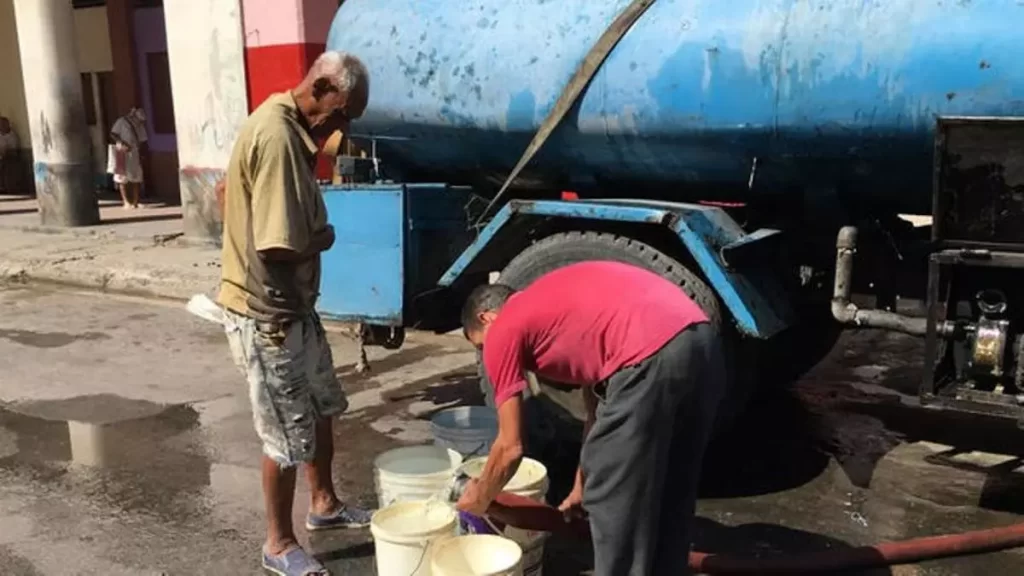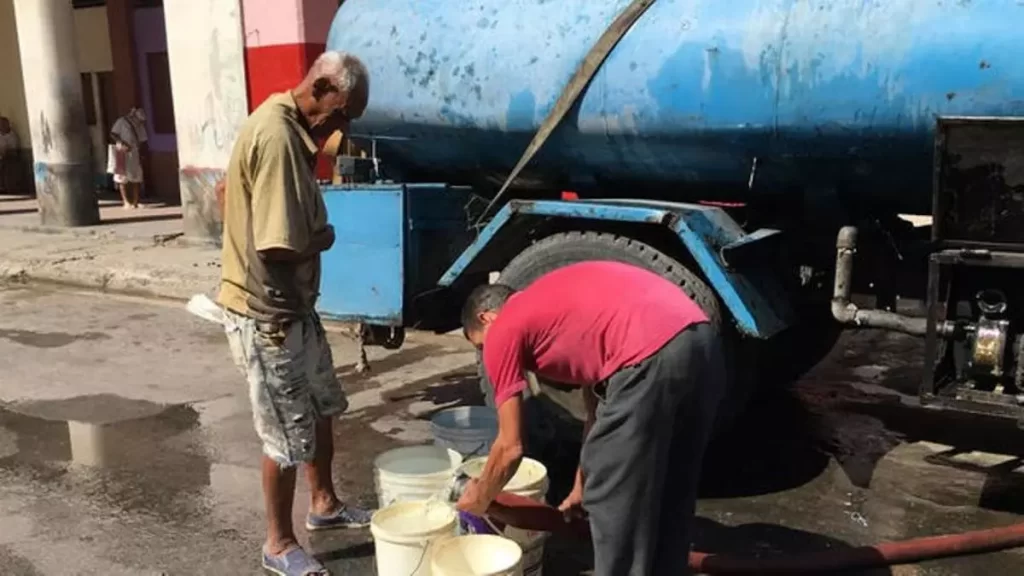
14ymedio, Madrid, 11 April 2024 — Barely 48% of the Cuban population receives water daily in conditions of quality, availability and accessibility. Despite the fact that the Government is committed by article 76 of the Constitution, which establishes that all people have the right to it and obliges the State to “create the conditions to guarantee access,” only 5,400,035 Cubans of the 11,089,511 who, according to official statistics, resided on the Island in 2022, enjoyed this human right.
The official media Cubadebate has convened for this Thursday at 10 a.m. an open forum in which readers are invited to leave their impressions, complaints and claims on this subject. There is no expectation of complacency; after the publication last March of a report on the water supply situation in Cuba, protests rained down on the newspaper.
To prepare the ground, State TV’s Round Table program – produced by Ideas Multimedios, the same group mentioned in Cubadebate – reviewed on Wednesday some indicators that make clear the bleak panorama. In part: 79.4% of the population has a supply, a total of 8.8 million people – always taking into account the official population data. Of these, 94.8% have intra-home service, 5% have reliable water trucks and 0.07% have easily accessible sources.
Some 94.8% have intra-home service, 5% have reliable water trucks and 0.07% have easily accessible sources
But in turn, we must break down the data of those who have service in their home, the “privileged,” which amounts to just over 8.3 million people; divided among those who receive it daily, just over 4 million; every other day, 2.1 million; in cycles of three to nine days, 1.6 million people; and, finally, the 566,000 who have it every ten days or more.
But there is still a worse rung on the ladder than the latter, those who do not have any supply service. That group is made up of 535,876 people, 6.1% of the population, who in turn are divided among those who do not have it because of: an “eventuality” (299,000); those with a service cycle greater than 7 days (386,530); those affected by catchment works (79,681); lack of electricity (4,110); and, finally, the large group: those who receive it intermittently in water trucks: 475,404 inhabitants who have water in periods longer than 15 days.
José Antonio Hernández Álvarez, president of the OSDE Agua y Saneamiento, offered all these data in last night’s broadcast and gave details about what the plans are to solve such a serious situation. “The main problems are in the eastern areas of the country, while in the center we have difficulties, especially in some mountainous territories and in the city of Santa Clara. Right now, th


